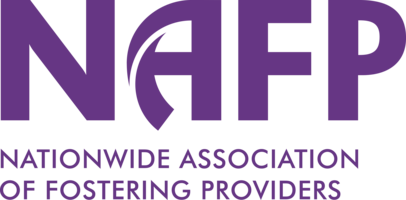The measures announced by government this week to improve social care for children are, by and large, proportionate and measured, tackling a sensible set of issues within the context of wider political and financial considerations. Overstretched children’s services are struggling to cope with ongoing funding cuts and increasing numbers of children needing care. Greater investment in early help and support for struggling families is the key reform needed in children’s social care.
This renewed commitment to children’s social care is welcome news for children living with foster carers from independent fostering agencies (IFA). IFAs make up nearly 50% of foster carers in England, caring for almost 50% of children in foster care. They also offer services for young people with some of the highest levels of needs. Ofsted judged 96% of IFAs to be good or outstanding in 2023-23 and NAFP’s report, Outcomes from Fostering (May 2024), shows the excellent progress that children living with IFA foster carers make. Indeed, the contribution of IFAs is a part of ‘the significant improvements in the number of local authority children’s services rated ‘good’ or ‘outstanding’’.
Government is inviting providers of children's social care to respond positively and we will work with government in this spirit. As we learn more of the detail behind government’s plans, the repeated commitment in these announcements to engage with the sector is most welcome.
The primary focus of children’s services should be children in need of support and it is right to challenge poor quality care and poor value for money where we find it. NAFP will work with Ofsted in their expanded role to look at the financial basis of IFAs, and in gaining a better understanding of groups of IFAs within the wider independent children’s services sector, to ensure Ofsted can fulfil this role effectively. But Ofsted must also develop and improve its understanding of how local authorities work with IFAs and learn from the best relationships here. NAFP has previously floated the idea with government of 'living wills' as a way of planning for the sudden possible closure of a provider. As a sector-led response, we will work with our members to develop this tool if government believes it to be a useful part of the solution.
With the piloting of Regional Care Cooperatives (RCC) and the wider rollout of local authority fostering recruitment and retention hubs, there is a clear push towards regionalisation of local authority activity. Whilst regional and sub-regional working by local authorities has been a feature of children’s social care for over a decade, there seems to be little application of the lessons learned so far. One issue that could be addressed by RCCs is children living with foster carers out of their own local authority area. The cause of this is the disjointed and layered way in which local authorities choose to utilise IFA foster carers - every local authority has children from other local authorities living with IFAs carers in their areas. With improved coordination of referrals and placements, this could be significantly redressed over time.
Local authorities and IFAs are two parts of the same system. Government thinking and policy should reflect this. The next step should be a dedicated strategy for fostering. We should put aside any historical divides in the best interests of children and work together to provide the high quality integrated fostering provision which our children and young people deserve.




